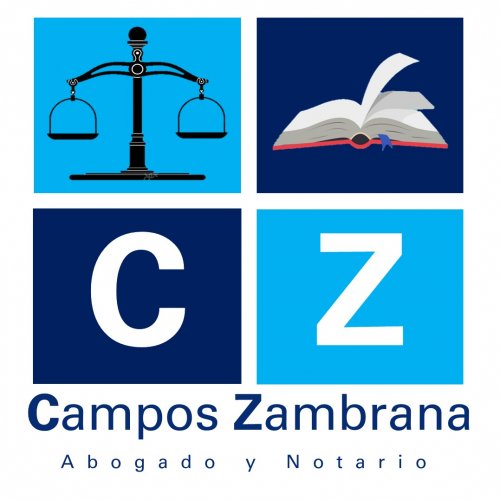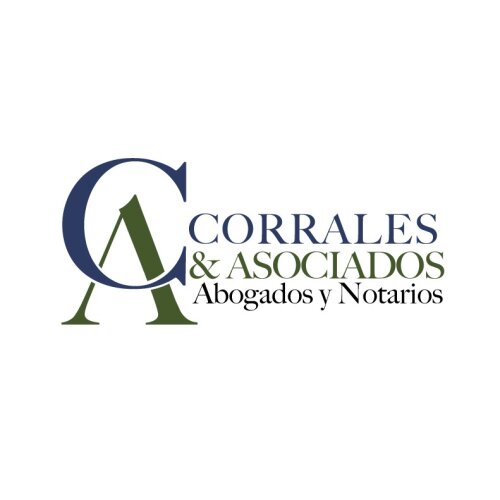Best Commercial Real Estate Lawyers in Nicaragua
Share your needs with us, get contacted by law firms.
Free. Takes 2 min.
Free Guide to Hiring a Real Estate Lawyer
Or refine your search by selecting a city:
List of the best lawyers in Nicaragua
About Commercial Real Estate Law in Nicaragua
Commercial real estate law in Nicaragua encompasses the regulations and legal guidelines governing the acquisition, development, and management of commercial properties within the country. Commercial properties might include offices, retail spaces, industrial warehouses, and other business-related real estate. This legal field covers transactions such as buying, selling, leasing, and financing commercial properties. Given Nicaragua's growing economy and emphasis on attracting foreign investments, understanding the commercial real estate landscape is crucial for domestic and international enterprises.
Why You May Need a Lawyer
Legal assistance in commercial real estate can be vital for a myriad of reasons:
- Complex Transactions: Buying or selling commercial property involves detailed contracts with significant financial implications.
- Due Diligence: Lawyers can conduct thorough investigations to ensure properties meet legal requirements and have clear titles.
- Contract Negotiation: Skilled legal negotiation can ensure favorable terms in leases or purchase agreements.
- Zoning and Permits: Navigating local zoning laws and acquiring necessary permits can be a complex process requiring legal expertise.
- Dispute Resolution: In cases of disputes, a lawyer can represent your interests in negotiations or in court.
Local Laws Overview
Nicaraguan commercial real estate is governed by both national legislation and municipal regulations. Key aspects include:
- Property Rights: Ensure clear title and understanding of rights conferred upon ownership.
- Foreign Ownership: While generally liberal, there are restrictions in certain strategic areas.
- Zoning Regulations: These dictate permissible property uses, such as commercial, industrial, or mixed-use.
- Environmental Regulations: Compliance with ecological impact assessments and sustainability practices is mandatory for development.
- Taxation: Understanding property tax obligations and potential incentives.
Frequently Asked Questions
What is the process for purchasing commercial real estate in Nicaragua?
The process typically involves property search, offer negotiation, due diligence, contract drafting, and registration with the national property registry.
Are there any restrictions for foreign investors?
Nicaragua largely allows foreign ownership, but there may be specific restrictions in coastal or border areas requiring legal consultation.
What types of properties are considered commercial?
Properties designed or used for business purposes, including offices, retail stores, warehouses, and industrial sites, fall under this category.
How are commercial leases structured in Nicaragua?
Most commercial leases are long-term with terms and conditions negotiated between the parties. Lease agreements need to comply with the Civil Code.
Are there any tax incentives for commercial property investors?
The government occasionally offers tax incentives for investors, especially in sectors promoting economic development, which may require legal navigation.
What legal documents are necessary for commercial real estate transactions?
Important documents include the title deed, purchase agreement, property surveys, and any applicable regulatory compliance certificates.
How can zoning laws affect my commercial real estate project?
Zoning laws dictate the types of activities permissible on a property and can impact project feasibility, requiring approvals or modifications.
What should I review during due diligence?
Due diligence should include title search, assessment of environmental compliance, building inspections, and review of current tenant leases.
How do I resolve a commercial lease dispute?
Disputes can be resolved through negotiation, mediation, arbitration, or litigation, depending on the lease terms and complexity of issues.
What is the role of a notary in commercial real estate transactions?
Notaries in Nicaragua authenticate documents, ensuring legal veracity and compliance, and oversee the registration of transactions.
Additional Resources
Several resources can provide further guidance:
- Nicaraguan Chamber of Real Estate: Offers connections to industry professionals and insights.
- Government Registry Offices: Handles property records and transactions, providing important legal documentation.
- Local Legal Firms: Specializing in commercial real estate law, they offer expert advice and representation.
Next Steps
If you require legal assistance in commercial real estate, consider the following steps:
- Identify your legal needs and the scope of assistance required.
- Research and consult with specialized local lawyers or firms experienced in commercial real estate law.
- Prepare relevant documentation and details of your real estate interests or transactions.
- Engage a lawyer to guide you through the process, ensuring compliance with all legal obligations and maximizing your real estate investment potential.
Lawzana helps you find the best lawyers and law firms in Nicaragua through a curated and pre-screened list of qualified legal professionals. Our platform offers rankings and detailed profiles of attorneys and law firms, allowing you to compare based on practice areas, including Commercial Real Estate, experience, and client feedback.
Each profile includes a description of the firm's areas of practice, client reviews, team members and partners, year of establishment, spoken languages, office locations, contact information, social media presence, and any published articles or resources. Most firms on our platform speak English and are experienced in both local and international legal matters.
Get a quote from top-rated law firms in Nicaragua — quickly, securely, and without unnecessary hassle.
Disclaimer:
The information provided on this page is for general informational purposes only and does not constitute legal advice. While we strive to ensure the accuracy and relevance of the content, legal information may change over time, and interpretations of the law can vary. You should always consult with a qualified legal professional for advice specific to your situation.
We disclaim all liability for actions taken or not taken based on the content of this page. If you believe any information is incorrect or outdated, please contact us, and we will review and update it where appropriate.
Browse commercial real estate law firms by city in Nicaragua
Refine your search by selecting a city.










